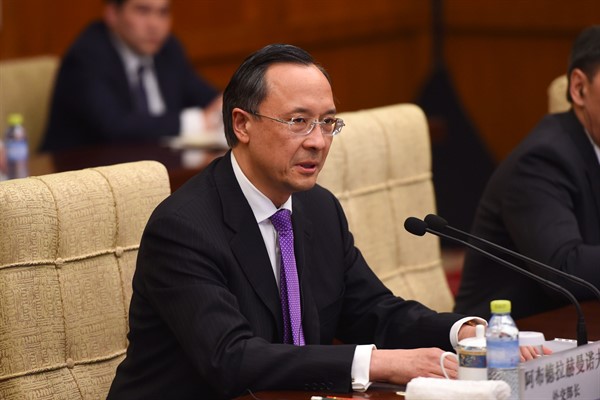For the first time, an official from a former Soviet country has been named to a senior position at the Organization for Security and Cooperation in Europe. Kairat Abdrakhmanov, a well-regarded diplomat who served as Kazakhstan’s foreign minister from 2016 until 2018, was appointed earlier this month as the OSCE’s new high commissioner for minorities. His job will be to protect the rights of ethnic minorities in the OSCE’s 57 member states—part of a broad commitment to protecting human rights that was enshrined in the 1975 Helsinki Accords, which stabilized relations between the Soviet bloc and the West at the height of the Cold War and led to the creation of the OSCE.
By including a separate section or “basket” for what its drafters called “the human dimension,” along with economic and security dimensions, the Helsinki Accords embraced the principle that human rights violations anywhere are of concern everywhere, and preventing them is a key component of international stability. Since its creation, the OSCE has worked to mediate conflicts and monitor the state of democracy and human rights in member states—much to the chagrin of authoritarian members like Kazakhstan.
In theory, having an official from Central Asia serve in a senior OSCE position for the first time could be seen as a breakthrough that symbolizes the region’s democratic progress. Given President Kassym-Jomart Tokayev’s well-publicized reform agenda, that is certainly how Kazakh officials are selling it. However, Abdrakhmanov’s appointment in fact risks diluting the OSCE’s own human rights standards, unless he is willing to use his position to push his own government—whose record on democracy has been poor—to make changes that are systemic, not simply cosmetic. After all, if Abdrakhmanov does not call his own government out on human rights, why should other states pay attention when he pushes them?

